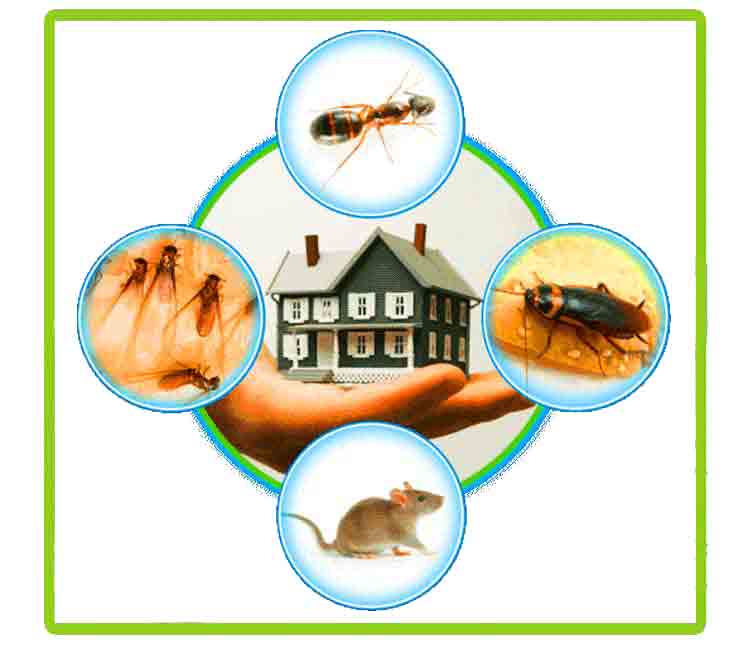Safe and Trusted Insect Control for Lasting Protection
Reliable pest management needs a multifaceted strategy that stabilizes eco-friendly integrity with the need for effective insect reductions. The nuances of these methods may not be promptly clear, motivating a more detailed examination of the techniques that can lead to sustainable insect control outcomes.
Understanding Bug Control Approaches
Insect control includes a variety of approaches targeted at managing and getting rid of unwanted bugs and rodents that can intimidate both health and wellness and building. Recognizing these methods is vital for effective insect monitoring.
The main categories of insect control methods consist of mechanical, organic, and chemical strategies. Mechanical techniques entail physical obstacles and catches to avoid insect entrance and capture undesirable species. Utilizing screens on home windows or utilizing sticky traps can dramatically reduce pest populaces without introducing damaging compounds - exterminator coquitlam.

Chemical parasite control is frequently one of the most acknowledged technique, utilizing pesticides to remove parasites. These chemicals can be effective however should be utilized with caution to prevent adverse impacts on non-target varieties and the environment.
Benefits of Eco-Friendly Solutions
How can green remedies transform parasite control techniques? The adoption of green bug control approaches offers many advantages, dramatically enhancing the efficiency and security of insect monitoring (exterminator coquitlam). These options make use of natural active ingredients, lowering the reliance on harmful chemicals that can position risks to human wellness and the setting. This shift not just secures pets and family members but additionally lessens the possibility for soil and water contamination.

An additional advantage is the positive effect on neighborhood biodiversity. Environmentally friendly options are created to target particular pests while preserving useful bugs and wild animals, promoting a well balanced environment. This method straightens with the growing consumer demand for lasting methods, improving the credibility of insect control suppliers.
Integrated Parasite Management Approaches
The execution of green services normally brings about the fostering of Integrated Bug Monitoring (IPM) methods, which even more improve bug control efficacy. IPM is a holistic technique that integrates numerous strategies to handle parasite populaces while lessening ecological impact. This strategy stresses the use of biological, social, mechanical, and chemical controls, ensuring a well balanced and sustainable technique of bug monitoring.
One essential aspect of IPM is the thorough evaluation of insect activity and ecological problems. By keeping an eye on pest populaces and determining their life cycles, professionals can carry out targeted interventions that interfere with the pest's environment or lifecycle, minimizing reliance on chemical pesticides. Furthermore, cultural techniques such as plant rotation and habitat manipulation can considerably diminish pest facility and recreation.
An additional crucial part is using biological control representatives, such as useful pests or microbes, which can normally suppress parasite populaces. When chemical applications are essential, IPM focuses on using low-risk chemicals and applies them precisely, minimizing direct exposure to non-target microorganisms and people.
Integrating IPM approaches not only improves bug control effectiveness however likewise promotes a more secure community, lining up with the growing need for sustainable practices in parasite administration.
Safe Practices for Property Owners
Understanding the relevance of risk-free practices webpage in insect control can equip homeowners to efficiently take care of bug issues while protecting their wellness and the setting. Implementing precautionary procedures and non-toxic techniques is critical in decreasing direct exposure to damaging chemicals.
Homeowners need to initially assess their setting for conditions that attract pests, such as standing clutter, food, and water waste. Regularly cleansing and sealing entry points can hinder insects from attacking the home. Making use of natural deterrents, such as necessary oils or diatomaceous earth, can offer reliable alternatives to chemical pesticides.
When chemical treatments are essential, home owners need to decide for items that are particularly labeled as risk-free for domestic use. It is important to follow application guidelines meticulously to avoid overexposure. Making use of targeted treatments in areas where bugs are identified, rather than covering splashing, can substantially decrease chemical usage.
Last but not least, keeping open interaction with pest control professionals is crucial. Homeowners should inquire concerning the safety and security of products utilized and demand eco-friendly choices whenever feasible. By embracing these secure practices, property owners can create a much healthier living atmosphere while properly managing parasite issues.

Tips for Long-Term Security
Developing a bug monitoring method that stresses long-term security can significantly enhance the performance of the safe practices formerly reviewed. To accomplish this, homeowners should implement routine assessments of their building, concentrating on hidden areas such as pest technician attics, basements, and crawl rooms. Early discovery of parasite activity is vital in protecting against invasions from taking hold.
These techniques lower attractants that attract pests right into the home. Sealing access factors, such as splits around home windows and doors, can effectively obstruct potential parasite accessibility.
Landscaping ought to likewise be considered; keeping plants cut and maintaining a distance in between plant life and the home lessens hiding places for pests. Making use of natural deterrents, such as crucial oils or diatomaceous earth, can even more dissuade infestations without turning to harsh chemicals.
Last but not least, collaborating with an expert bug control service for routine analyses can offer an extra layer of safety and security. These experts can offer tailored recommendations and advanced therapies, making certain that your home continues to be secured against bugs in the long-term.
Verdict
Finally, safe and reputable bug control requires a multifaceted technique that emphasizes environment-friendly methods and incorporated pest management. By implementing all-natural deterrents, carrying out routine assessments, and preserving proper cleanliness, residential view it property proprietors can considerably lower pest populaces while safeguarding useful pests and the atmosphere. Partnership with expert pest control solutions enhances the efficiency of these methods, guaranteeing customized services that offer enduring protection and assurance versus future invasions.
Effective insect administration requires a multifaceted approach that balances eco-friendly stability with the requirement for reliable pest reductions. The fostering of environmentally friendly parasite control methods provides numerous benefits, considerably enhancing the effectiveness and safety of pest administration.The implementation of eco-friendly solutions naturally leads to the fostering of Integrated Insect Management (IPM) techniques, which even more improve bug control efficiency. exterminator coquitlam. By keeping track of parasite populaces and identifying their life cycles, professionals can implement targeted interventions that interrupt the insect's habitat or lifecycle, reducing dependence on chemical pesticides.In conclusion, trustworthy and risk-free bug control calls for a diverse technique that emphasizes environment-friendly approaches and integrated parasite management